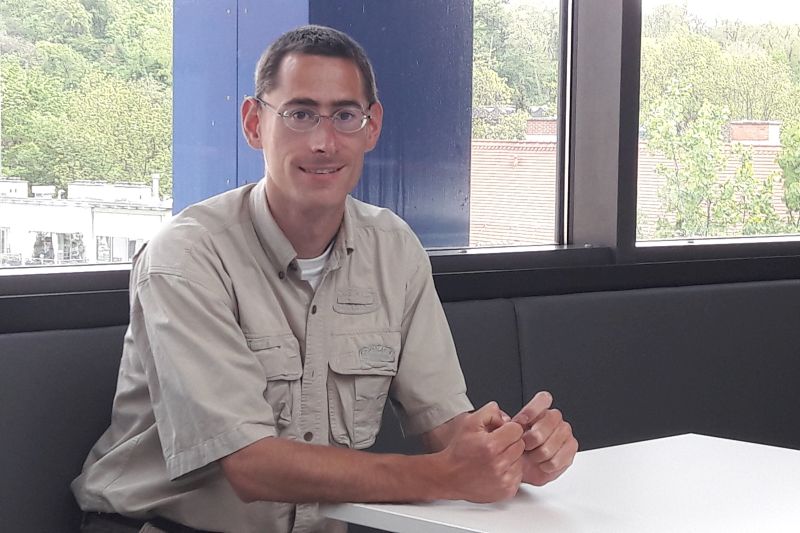REWI: Mr Berkes, we’re happy to have you here at REWI Graz as our Land Steiermark Fellow! What opportunities does the Land Steiermark Fellowship give you?
Antal Berkes: I am grateful and honoured to continue my research at REWI Graz as the fellowship provides me a fantastic opportunity to prepare an important part of my publications in the stimulating research environment of the University of Graz. Especially in the field I am currently working in, in general international law, international human rights law and the law of the use of force, I will have the occasion to exchange my ideas with world-leading professors and experts of the Faculty of Law. I am particularly glad that the University of Graz could offer its research environment despite the pandemic, while in the UK and various European states most libraries are still closed.
REWI: Your research focuses on international human rights law and degrees of complicity. What are the most interesting findings of your research so far? What questions will you look into while in Graz?
Antal Berkes: International legal scholarship has so far neglected the analysis of the various ways in which third States, understood as any States other than the State where a serious violation of international rules occurs, are expected to respond to the most serious violations of international law outside their territory. Current examples include transnational data sharing with a State that systematically uses practices of torture, military or intelligence cooperation with States regularly violating fundamental rules of the law of armed conflicts, trade or development with a State unlawfully exploiting an occupied territory or financial support to another State’s authorities for unlawful practices of migration management. Existing rules of international law define complicity in a narrow sense: they set high-threshold standards that require knowledge and intention to contribute to the unlawful act. However, they fail to remedy various contemporary modes of involvement of States in unlawful conducts that otherwise indirectly contribute to or benefit from an unlawful situation in another State. In Graz, I will examine how far the literature in international law and some specialized rules (in international human rights law, the law of arms trade, the emerging rules on business and human rights, etc) address certain forms of complicity that the general rules and the dominant scholarly view have so far ignored.
REWI: We’re really looking forward to your upcoming research results! Maybe we can follow up with some details on your time before you came to Graz, like previous positions, memorable experience in your career...
Antal Berkes: Thanks to the fascinating research environment of the academic centres where I worked before, I had the honour to collaborate in important research projects in the broader field of international law. I can evoke some memorable examples, among various others. At the international law centre of Paris 1, I was member of a team comparing the implementation of the Charter of Fundamental Rights in 17 member States, some eight years after its entry into force. At the Manchester International Law Centre, I could collaborate with the directors on a project on customary international law, co-organize a workshop on international law and democratic governance, or start to set up an online database on the justice of non-state armed groups. In 2019, at the University of Pretoria, I had the honour to prepare my book in close dialogue with leading South African experts of international law and collaborate with various members of the research excellence centre of Professor Erika de Wet. All these projects have helped me to familiarize with diverse approaches and methods in international law.
REWI: What would you say are the most exciting aspects of a career in research?
Antal Berkes: When I can find support for my ideas in past or contemporary legal sources, and contribute with my publications to the real life, that is the legal practice. Occasions where litigants, States or international organisations confirm my own conclusions are particularly encouraging, but the opposite, unexpected legal developments also inspire my further research. My co-investigator in the project on complicity, Dr Valentina Azarova regularly contributes to international litigation, in part based on our findings, and I can only hope that our long-term project will positively influence the practice of States.
REWI: Let’s get to our very last question: apart from legal issues – what’s the most striking difference for you, comparing Austria to the countries you have worked in before (UK, Hungary, South Africa)?
Antal Berkes: A specificity of the Austrian higher education is its stability that positively contributes to a diverse range of university curricula and a stimulating research environment. In particular in legal education, Austria has followed the German legal traditions and managed to maintain a high degree of expectation throughout the four years of the legal curriculum and afterwards. Austrian lawyers have a worldwide reputation of proceeding according to a high level of professional ethos, be it in courtrooms or in diplomatic negotiations. Finally, in my field of public international law, Austrian scholars, especially the so-called Vienna School after the First World War (eg Hans Kelsen, Josef L. Kunz, Alfred Verdross) established a new constitutionalist approach to international law. They had a leading role in setting the theoretical foundations of international legal positivism based on the constitutional debates of the Habsburg Empire. To me, stability and thinking in perspective are values more important than ever nowadays, in a time of change and uncertainty.
Click here for more on the REWI Fellowship Programme.
